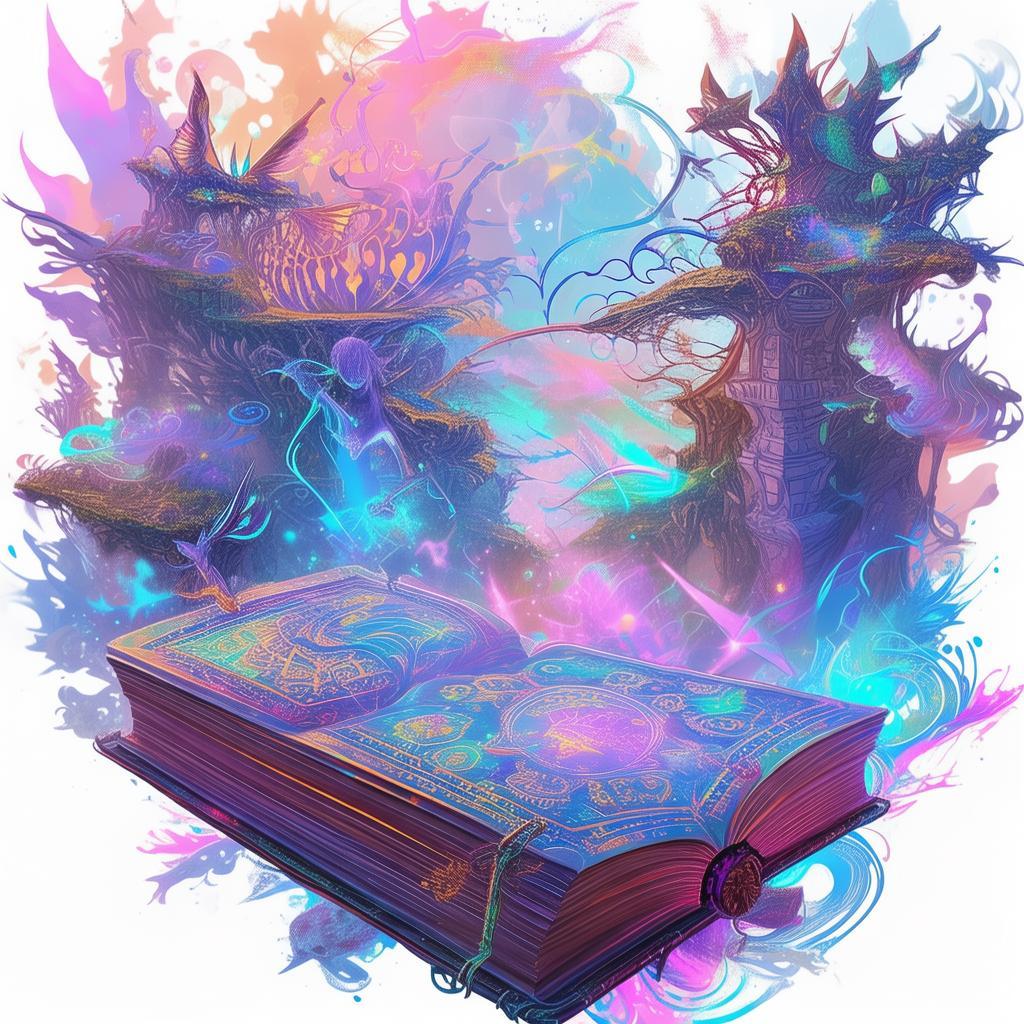Chronicles of the Culinary Conspirator
The sun had barely risen over the cobblestone streets of Paris when Emile, a master chef with a reputation for both his exquisite cuisine and his cunning, stepped into the dimly lit kitchen of his latest culinary creation. The air was thick with the scent of fresh herbs and the promise of an early breakfast, but Emile's mind was elsewhere. His thoughts were consumed by a diary, one that he had stumbled upon in the attic of an old mansion, a mansion that was rumored to be haunted by the ghost of a forgotten chef.
The diary, bound in leather and adorned with intricate gold lettering, was the secret diary of a time-traveling chef named Auguste. Emile had always been fascinated by the idea of cooking through history, and the diary promised access to recipes that had been lost to time. But as he delved deeper into the pages, he realized that the diary held a darker secret—a conspiracy that could change the course of culinary history.
The diary spoke of a rival chef, a man named Claude, who had been using the same time-traveling device that Auguste had discovered. Claude had been using it to steal the secrets of the world's greatest chefs, recipes that were worth their weight in gold. Emile's curiosity was piqued, but so was his competitive spirit. Could he use this information to surpass Claude and become the greatest chef of all time?
As Emile began to piece together the clues, he found himself drawn into a web of deceit and betrayal. Claude was a cunning and ruthless opponent, and he would stop at nothing to protect his culinary empire. Emile knew that he had to be careful, for Claude's reach was far and wide, and his methods were as dark as the shadows that lurked in the alleys of Paris.
The first clue came in the form of a mysterious package. It contained a single recipe, one that was said to be the secret to an indestructible cake. Emile knew that this was a trap, but he couldn't resist the temptation. He set to work, determined to outdo Claude's creation.
Meanwhile, Claude was not far behind. He had his own plans, and they involved using the diary to alter the past and change the future of culinary history. Emile realized that he was not just competing against Claude, but also against time itself.
As the two chefs raced against each other, their rivalry grew intense. They began to manipulate historical events, using their knowledge of the past to their advantage. Emile discovered that Claude had tampered with the recipe for the famous French onion soup, altering it in a way that would make it impossible to replicate. The dish that had once been a symbol of French culinary pride was now a disaster, leaving diners in Paris with a sour taste in their mouths.
Emile, determined to win the race, decided to take matters into his own hands. He visited the mansion where the diary had been found, hoping to uncover more clues. There, he encountered the ghost of Auguste, who revealed that the diary was a double-edged sword. It could bring about great culinary achievements, but it could also lead to destruction and chaos.
The ghost's words echoed in Emile's mind as he stood before the diary. He realized that he had a choice to make. He could continue his pursuit of glory, or he could put an end to Claude's manipulations and restore the integrity of culinary history.
In a climactic showdown, Emile confronted Claude in the kitchen of the mansion. The air was thick with tension as the two chefs prepared their final dishes. Emile's creation was a masterpiece, a testament to his skill and dedication. Claude's dish, however, was a disaster, a result of his overconfidence and greed.

As the judges tasted the dishes, Emile's creation was declared the winner. The crowd erupted in applause, and Emile knew that he had won more than just a culinary contest. He had won the respect of his peers and the integrity of his craft.
In the end, Emile decided to destroy the diary, knowing that its power was too great to be left in the hands of anyone. He returned to his kitchen, vowing to use his skills for the greater good, to create dishes that would bring joy and not controversy.
The culinary world would never be the same, but Emile's legacy would live on. He had proven that true greatness came not from manipulation and deceit, but from passion, skill, and the pursuit of culinary perfection.
✨ Original Statement ✨
All articles published on this website (including but not limited to text, images, videos, and other content) are original or authorized for reposting and are protected by relevant laws. Without the explicit written permission of this website, no individual or organization may copy, modify, repost, or use the content for commercial purposes.
If you need to quote or cooperate, please contact this site for authorization. We reserve the right to pursue legal responsibility for any unauthorized use.
Hereby declared.









